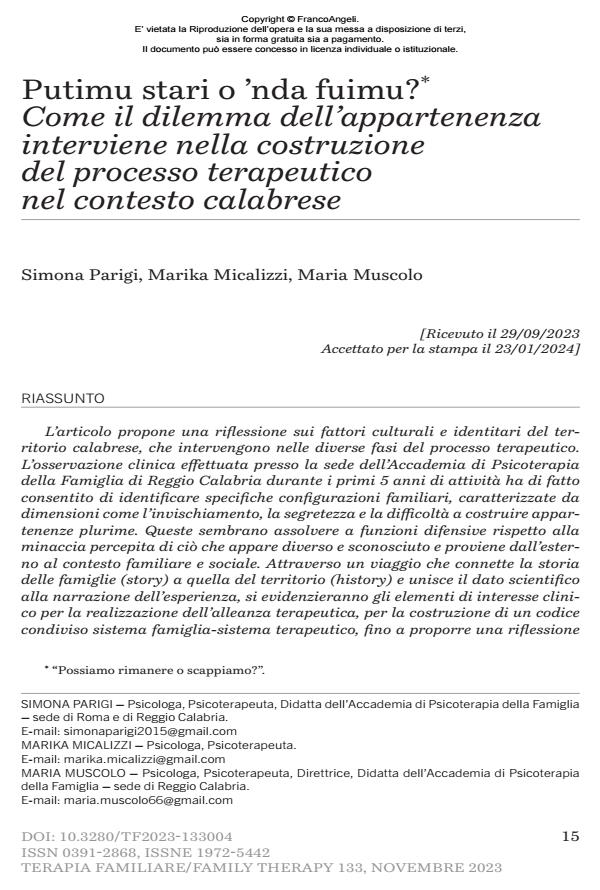Should we stay or should we go? The dilemma of belonging during the steps of the therapeutic process with Calabria’s families
Journal title TERAPIA FAMILIARE
Author/s Simona Parigi, Marika Micalizzi, Maria Muscolo
Publishing Year 2024 Issue 2023/133
Language Italian Pages 15 P. 15-29 File size 676 KB
DOI 10.3280/TF2023-133004
DOI is like a bar code for intellectual property: to have more infomation
click here
Below, you can see the article first page
If you want to buy this article in PDF format, you can do it, following the instructions to buy download credits

FrancoAngeli is member of Publishers International Linking Association, Inc (PILA), a not-for-profit association which run the CrossRef service enabling links to and from online scholarly content.
The article proposes a reflection on the cultural and identity factors of Calabrian territory, along the different steps of the therapeutic process. The Clinical observation at the Accademia di Psicoterapia della Famiglia in Reggio Calabria, during the first 5 years of activity, has allowed the identification of specific family configurations, characterized by dimensions such as enmeshment, secrecy and difficulty in building multiple affiliations. These seem to have a defensive function to the perceived threat before what appears different and unknown and comes from outside the family and social context. On a journey through the families (story) and territory (history) history, that combines scientific data with the narratives about the experience, the elements of clinical interest will be highlighted to reach the therapeutic alliance, to build a share code family system-therapeutic system, to propose a reflection on the protective factors for dropout reduction and co-building of a thinkable and evolutionary differentiation, which guarantees the possibility to belonging.
Keywords: myth, differentiation, family psychotherapy, Calabria, multigenerational family therapy, belonging.
Simona Parigi, Marika Micalizzi, Maria Muscolo, Putimu stari o ’nda fuimu? Come il dilemma dell’appartenenza interviene nella costruzione del processo terapeutico nel contesto calabrese in "TERAPIA FAMILIARE" 133/2023, pp 15-29, DOI: 10.3280/TF2023-133004